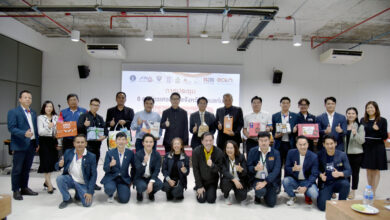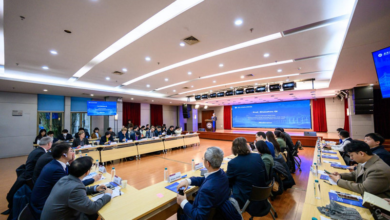“Are Foreign Students Bringing Parents to Work in Korea a Form of Exploitation?”

South Korea has launched a pilot program that permits international students to bring their parents to the country for seasonal work. This initiative aims to address labor shortages in rural regions but has raised concerns regarding potential exploitation and human rights violations.
Eligibility and Criteria
Under this program, international students who have been enrolled for more than a year at designated universities outside the Seoul metropolitan area are eligible to invite their parents to work in South Korea. The participating institutions have met specific criteria related to their internationalization efforts, including universities such as Pusan National University, Kyungpook National University, and Chonnam National University.
Comparisons with Other Countries
The model has similarities with initiatives in other Asian countries. For instance, Japan issues special visas for the parents of researchers, while Taiwan is considering visa extensions for the parents and grandparents of prominent scientific talents. However, South Korea’s program is distinct in its focus on alleviating seasonal labor shortages in agriculture and fisheries during peak seasons.
Program Details
Launched by the Ministry of Justice in February and set to continue until the end of the year, the program permits parents to work for up to eight months near their children’s educational institutions. To qualify, students must have at least two semesters remaining in their studies, and parental applicants must be under 55 years of age.
Addressing Labor Shortages
This initiative aligns with prior measures aimed at addressing the shrinking labor force in rural communities, a trend that began in 2017 when South Korea began importing seasonal labor after a successful pilot scheme in 2015-16. The government seeks to enhance the appeal of regional universities for foreign students and reduce the incidence of foreign workers leaving their jobs without permission. Reports indicated that in 2022, nearly 10% of foreign workers exited their positions without authorization. Although a ministry report in 2023 noted 490 cases of absconding, an investigation by a broadcaster suggested that the actual number could be as high as 900.
Impact of Family Presence
A ministry official noted that having family members in the country could help mitigate the risks of workers absconding, as parents are generally more familiar with the local language and customs. Additionally, the program may allow parents to assist with their children’s educational expenses in South Korea.
Concerns and Criticism
Despite its intentions, the seasonal worker initiative has attracted criticism due to persistent reports of human rights abuses, including low wages, excessive working hours, and substandard working conditions. There have been allegations of brokers confiscating passports and underpaying workers. Data from the Women’s Human Rights Institute of Korea indicated that from 2023 to June 2024, 11 workers were acknowledged as victims of human trafficking.
Legal Perspectives
Legal experts have voiced concerns about the extended application of the seasonal worker program to the parents of international students. Lawyer Lee So-ah highlighted systemic issues, indicating that the existing policy treats migrant workers as disposable labor. It was cautioned that unless broker exploitation is addressed, the expansion of the program could worsen current challenges.
Need for Government Oversight
Critics argue that focusing solely on reducing absconding rates is an inadequate approach to tackling the underlying issues of labor exploitation. Lawmaker Lim Mi-ae emphasized the need for enhanced government oversight regarding the management of foreign workers, pointing out insufficient measures to improve working conditions.
Current Statistics
As of 2023, more than 45,000 seasonal workers have entered South Korea, representing an increase from the prior year. This figure does not include the pilot program involving parents, as local governments continue to seek solutions for labor shortages exacerbated by an aging population.
Student Opinions
International students have expressed a range of opinions about the new program. Some, such as Baatar from Mongolia, perceive potential benefits in having their parents work in the country, while concerns about the demands of physical labor and safety were voiced. Another student from Kazakhstan highlighted trust issues relating to the reported human rights violations.
Conclusion
In summary, the pilot program that allows international students to bring their parents to South Korea as seasonal workers aims to address labor shortages in rural areas. However, it raises significant questions about worker treatment and broader human rights implications within the country’s labor sector.
Original source: University World News




